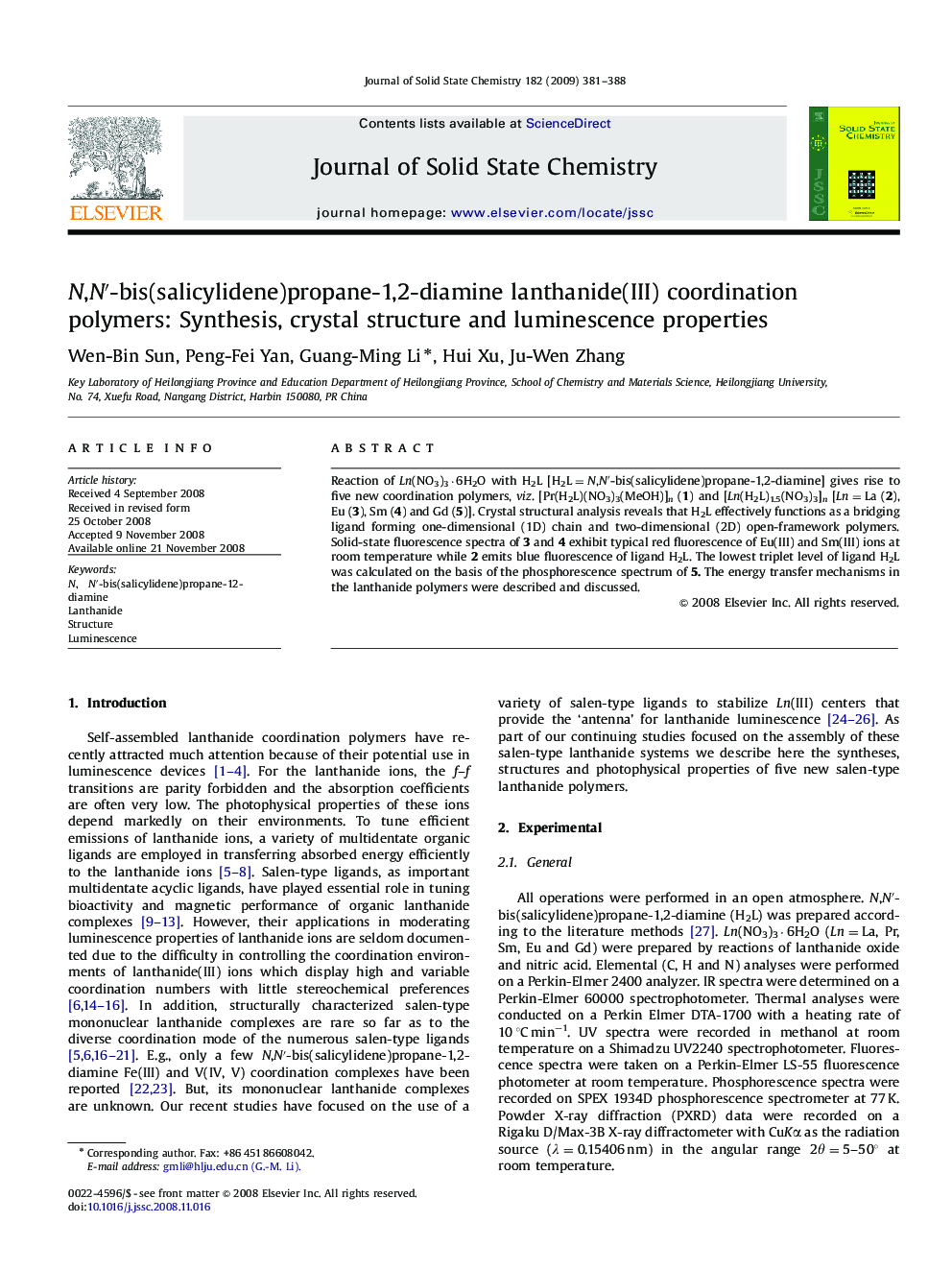| Article ID | Journal | Published Year | Pages | File Type |
|---|---|---|---|---|
| 1329589 | Journal of Solid State Chemistry | 2009 | 8 Pages |
Reaction of Ln(NO3)3·6H2O with H2L [H2L=N,N′-bis(salicylidene)propane-1,2-diamine] gives rise to five new coordination polymers, viz. [Pr(H2L)(NO3)3(MeOH)]n (1) and [Ln(H2L)1.5(NO3)3]n [Ln=La (2), Eu (3), Sm (4) and Gd (5)]. Crystal structural analysis reveals that H2L effectively functions as a bridging ligand forming one-dimensional (1D) chain and two-dimensional (2D) open-framework polymers. Solid-state fluorescence spectra of 3 and 4 exhibit typical red fluorescence of Eu(III) and Sm(III) ions at room temperature while 2 emits blue fluorescence of ligand H2L. The lowest triplet level of ligand H2L was calculated on the basis of the phosphorescence spectrum of 5. The energy transfer mechanisms in the lanthanide polymers were described and discussed.
Graphical abstractFive coordination polymers were synthesized. Given is the perspective view of a H2L bridged hexametal ring along the c axis for 2 (La), excitation and emission spectra of 3 (Eu) and 4 (Sm) in the solid state.Figure optionsDownload full-size imageDownload as PowerPoint slide
